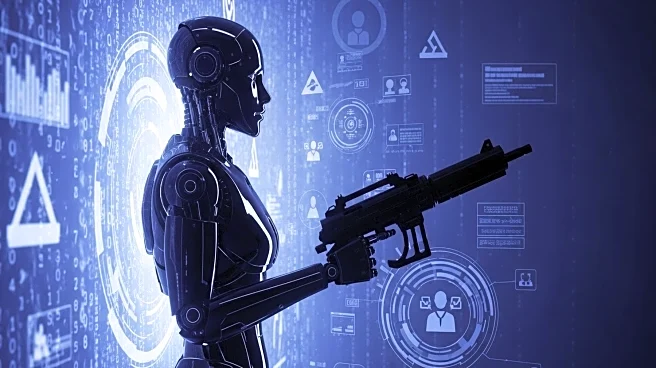What is the story about?
What's Happening?
OpenAI's latest generative AI tool, Sora 2, has sparked controversy due to its use of copyrighted characters in its video generation model. Launched on September 30, Sora 2 allows users to create videos featuring well-known characters like Pikachu and SpongeBob SquarePants, raising significant copyright infringement concerns. The model operates by default on copyrighted material, placing the onus on copyright holders to opt out. This has led to legal challenges from major companies like Disney and Warner Bros., who are already suing other AI companies for similar issues. The tool's ability to generate deepfakes and its TikTok-like feed have further fueled the debate over ethical AI use.
Why It's Important?
The controversy surrounding Sora 2 highlights the ongoing tension between AI innovation and intellectual property rights. As AI tools become more sophisticated, they pose a threat to creative industries by potentially replacing human artists and animators. This situation underscores the need for clearer regulations and ethical guidelines to protect creators' rights and ensure fair use of copyrighted material. The outcome of these legal battles could set important precedents for how AI technologies are developed and deployed in the future, impacting industries reliant on creative content.
What's Next?
As legal challenges mount, companies like OpenAI may face increased pressure to modify their AI models to comply with copyright laws. This could involve developing more robust opt-out mechanisms for copyright holders or altering the training data used by AI models. The response from major stakeholders, including content creators and legal experts, will likely influence the direction of AI policy and regulation. Additionally, the creative industry may need to adapt to the growing presence of AI by exploring new business models and strategies to coexist with these technologies.


















